Post
A catch
Save a catch to start your fishing logbook. You will be able to to share it with the community if yo want!
A fishing trip
Post an ad to go fishing with other fishermen
Save a catch to start your fishing logbook. You will be able to to share it with the community if yo want!
Post an ad to go fishing with other fishermen
Share a thought, a question with the community
My favorite cities
×Join our 431 fishermen and our 5 cofishermen in Sandwith in Cumbria. The fishing forecast is currently 3.8. The most caught fishes here are the common skate, the mullet fish, the cod fish and the brill fish. Come try the most famous fishing techniques like the the stalking fishing technique, trolling, pollack fishing with soft lure or support fishing for sea bream.
Our fishing forecast of Sandwith indicates the best time to go fishing in this city.
The Common Skate
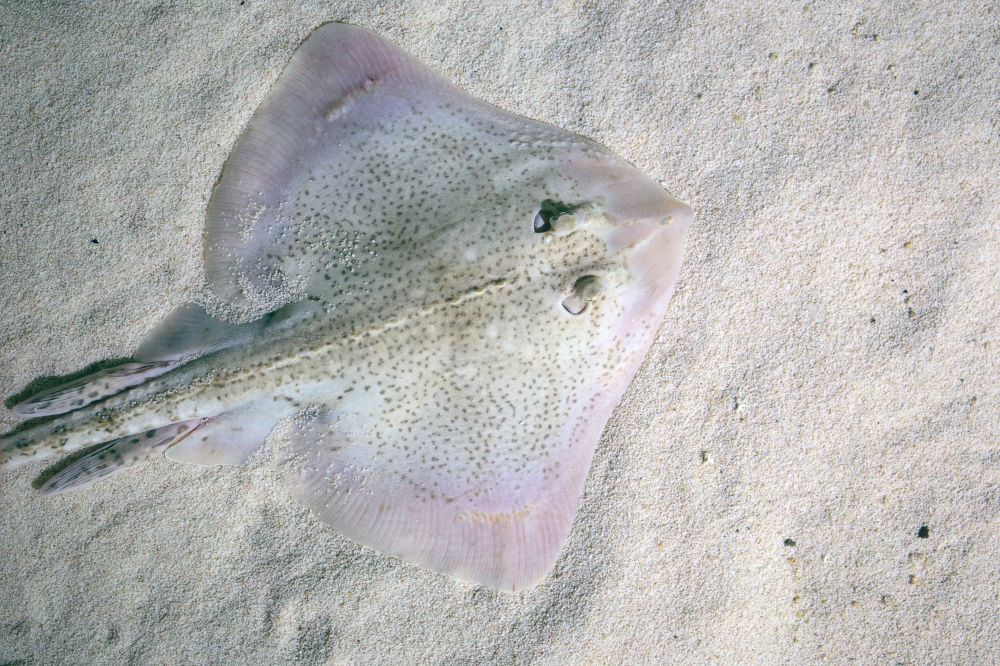
The Common Skate belongs to the Rajidae family. Its average size is 2.85 m for 110 kg of weight. It has a lifespan of 100 years. It breeds in spring to summer. The female can lay up to 40 eggs. They are considered as threatened species by the IUCN or International Union for Conservation of Nature. The Common Skate has a pointed snout and rhombic shape, with a row of spines along the tail. The upper surface is colored olive-grey to brown with dark or white spot, and the bottom is lighter blue-grey.
The Common Skate is a famous fish you can catch in Sandwith.The Mullet fish
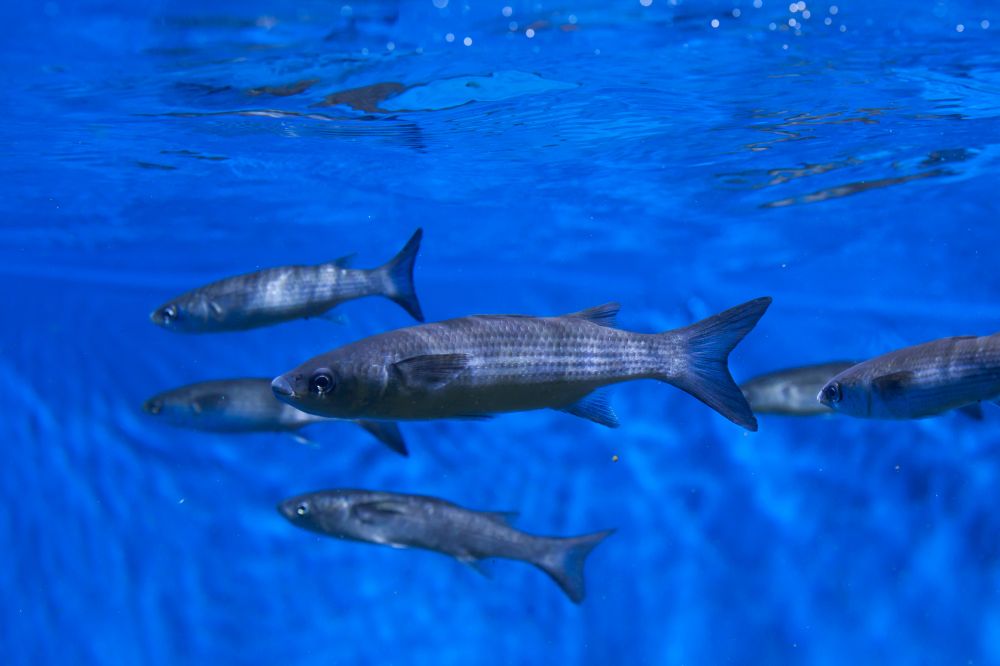
The Mullet fish belongs to the Mugilidae family. It can measure up to 75 cm and weigh 2.5 kg. A 16-year-old individual holds the observed longevity record. Breeding generally takes place from July to October. The female can lay up to 2.6 million eggs. It is fished from April to August. The mullet has an elongated body of about 35-50 cm or even 70 cm, with an oval cross-section and a robust appearance. Its color is generally silvery grey, bluish (sometimes more or less white, olive or brown), lightening on the sides and light belly. Sometimes grey longitudinal lines and golden reflections are present on the dorsal part. The lateral line is rarely visible. A small black spot is often present in the armpits of the pectoral muscles. The flattened head is wide, fat eyelids are well developed (but not always visible underwater because of their transparency) and protect the eyes near the snout. Its mouth has straight, dense and thin teeth, usually in several rows. The commissure ends below the posterior level of the nostril. Its upper lip is thin and smooth. It has two dorsal fins: the first with four spines and the second with 8-9 soft rays. The yellowish anal fin has 8 soft rays and 3 spines; pectoral fins have 16-19 rays; the pectoral axillary scale is well developed and about one-third the length of the fin. The ventral, anal and lower lobe of the caudal fins are sometimes yellow (but not necessarily yellow). The scales, arranged in lateral series (36-45), are cycloid (smooth
The Mullet fish is a famous fish you can catch in Sandwith.The Cod fish
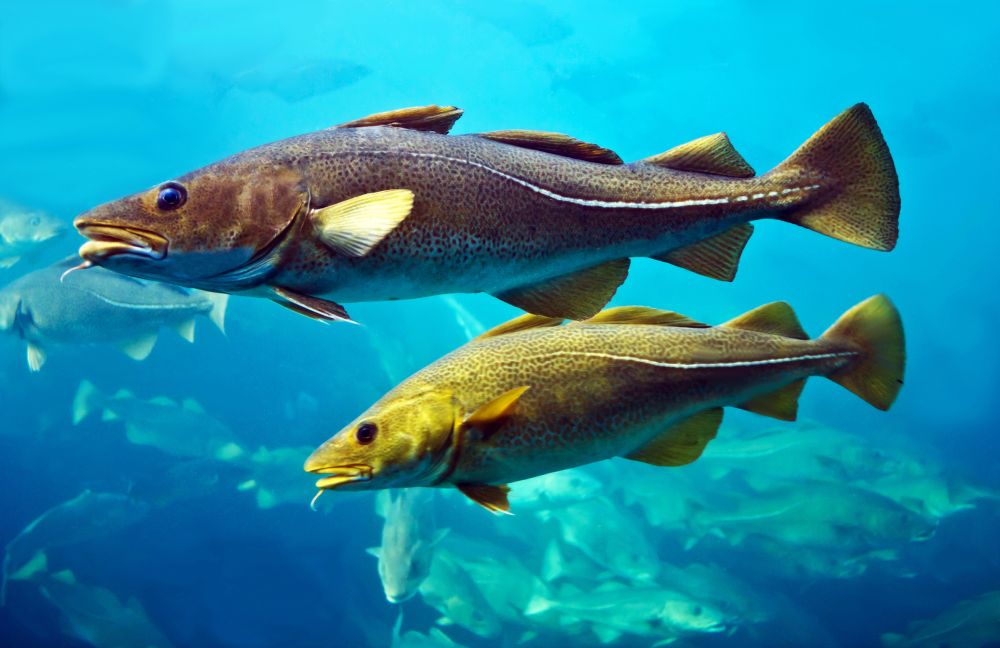
The Cod fish belongs to the Gadidae family. The Cod fish measure between 50 and 90 cm on average but can reach 1.80 metres for 40 kg and a maximum weight of 95.5 kg in some specimens. It can live up to 25 years. It reproduces from February to April. The female can lay 500,000 eggs. It can be fished all year round but productivity is better in March, April and October, November. Its elongated body is covered with small scales. The muzzle is relatively elongated, slightly prominent, conical and obtuse. A large mouth with the posterior edge reaching one third of the eye. There are many small teeth in each jaw. Presence of a barbel under the jaw. It has three dorsal fins and two anal fins. The pale lateral line is curved in the first 2/5 of the body. The body cavity is lined with a grey or silvery membrane and has small black, brown or red spots on the sides and back. The color varies according to the habitat and diet.
The Cod fish is a famous fish you can catch in Sandwith.The Brill fish
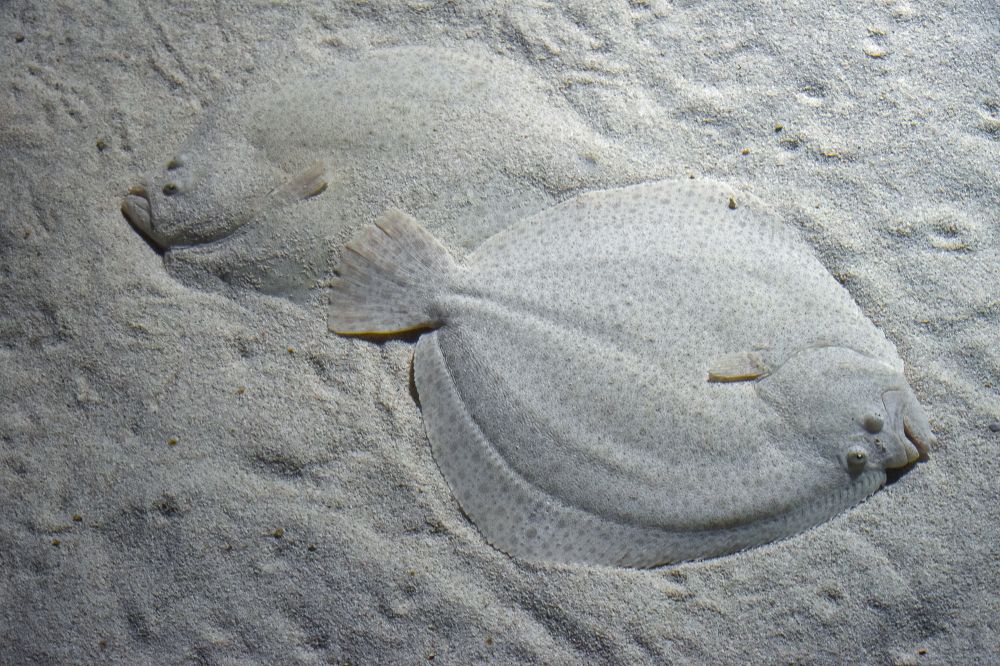
The brill fish belongs to the Scophthalmidae family. The minimum size of capture is 30 cm but can reach 75 cm for 6 kg. He can live up to 3 years. It breeds from late spring to early summer. The female can lay up to 15 million eggs. It can be fished all year. The brill has an oval body. It rests on its right side and has its left side. Thus, when placed with the head facing left, both eyes are located above the mouth. Its common name of brill comes from a particularity of its dorsal fin, whose origin is far in front of the eye and whose first rays are free and branched. The distance between the two eyes is greater than the diameter of one eye. The lateral line is very curved at the pectoral fin. As with many flatfish, the coloring is variable and depends on the biotope. The brill is indeed capable of homochromia, i.e. to match the color of the background. The coloring is rather brown, more or less speckled, and also varies according to the environment on a live fish. It has many round spots whose edges are incomplete rings of darker colors. The blind side is whitish.
The Brill fish is a famous fish you can catch in Sandwith.The Dab fish
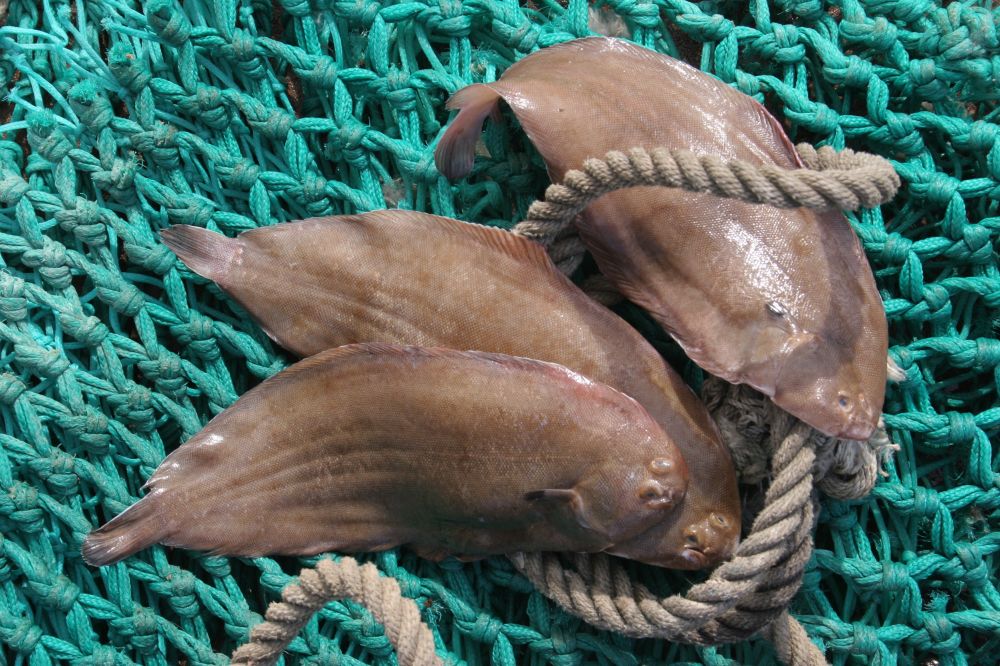
The Dab fish belongs to the Pleuronectidae family. It has an average size of 25 to 40 cm with an average weight of 1 kg. It has a lifespan of 12 years. The Dab fish breeds from February to April. The female lay up to 150,000 oocytes. The Dab fishing is open from October to Mars. the minimum catch size is 25 cm. The Dab fish, scientifically named Limanda Limanda, is a teleosteal species that belongs to the pleuronectidae or flatfish family. It has a flattened body with a more or less oval shape. The eyes of this dexterous fish are both generally located on the right side. The animal has a tiny mouth with small teeth. Its lateral line is curved at the pectoral fin. A characteristic feature that allows it to be easily distinguished from other species with similar morphology such as flounder. Thin scales cover the upper surface of the flounder, making its skin rough to the touch. The back is golden or yellowish brown in color and has dark spots. The belly or blind face is white. Varying from beige to light brown, the general color of dab allows it to blend in with the backgrounds.
The Dab fish is a famous fish you can catch in Sandwith.Our fishing forecast of Sandwith indicates the best time to go fishing in this city.
Our fishing forecast of Sandwith indicates the best time to go fishing in this city.
Our fishing forecast of Sandwith indicates the best time to go fishing in this city.
